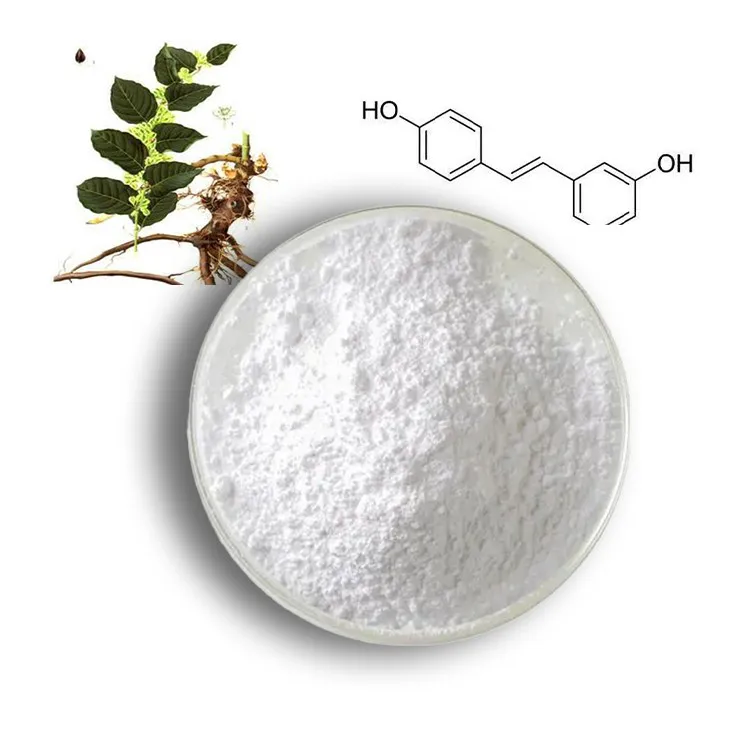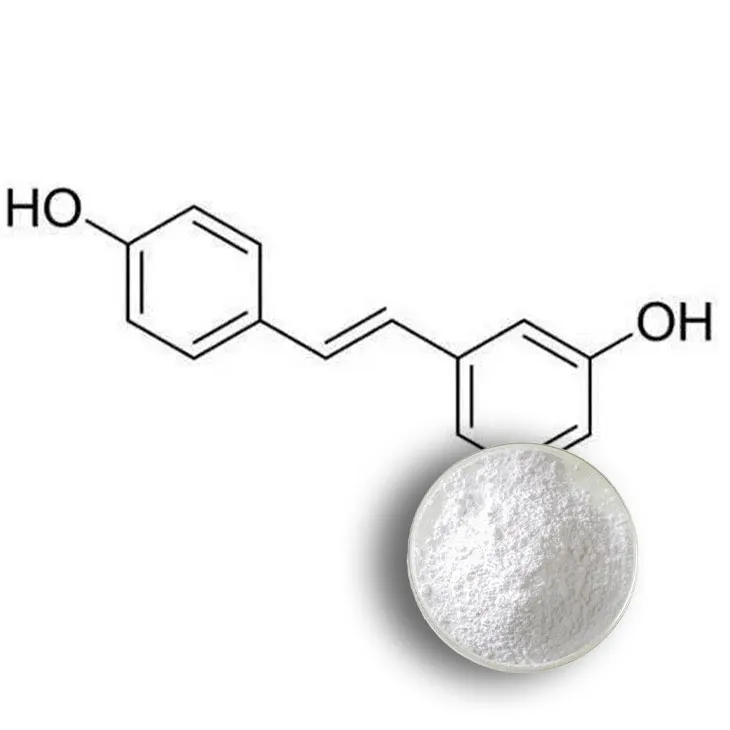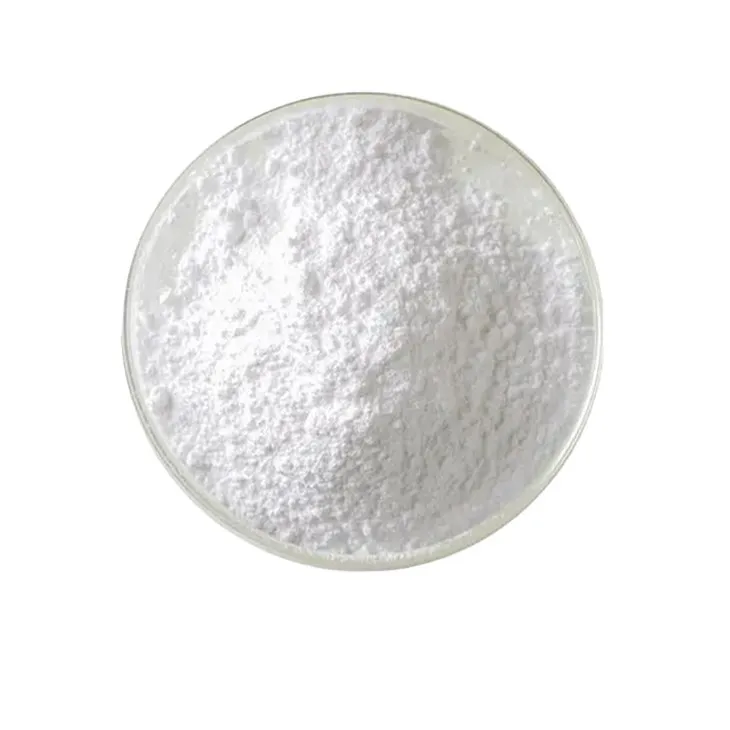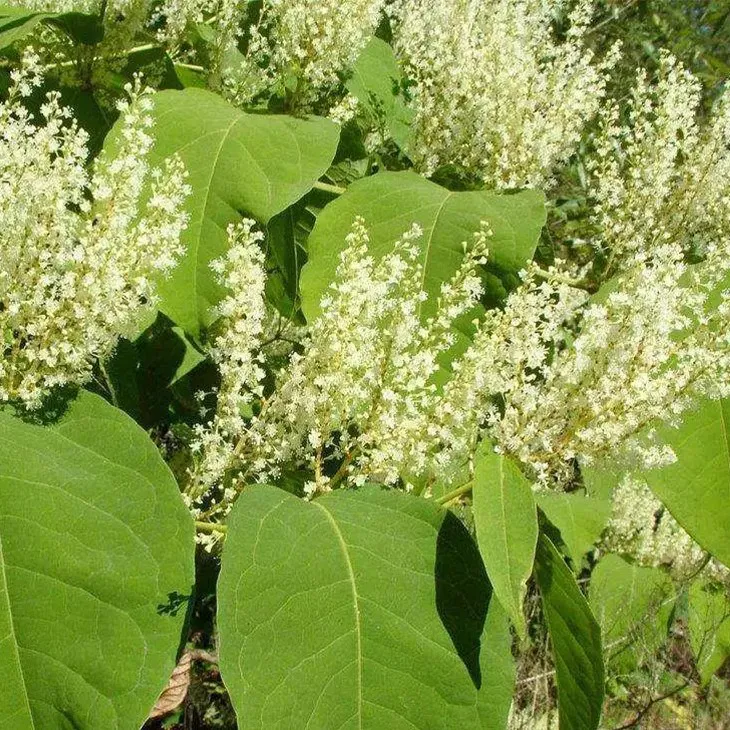- 0086-571-85302990
- sales@greenskybio.com
Benefits of Resveratrol Extract in Cattle Feed.
2024-11-12

1. Introduction
The use of Resveratrol extract in cattle feed has emerged as a topic of great interest in the field of animal husbandry. Resveratrol, a natural compound, has been found to possess numerous properties that can potentially enhance various aspects of cattle health and productivity. In this article, we will explore in detail the benefits of incorporating white Resveratrol extract into cattle feed.

2. Resveratrol as a Natural Growth Promoter
Resveratrol and Growth Stimulation
Resveratrol extract can act as a natural growth promoter in cattle. It has the ability to stimulate certain physiological functions within the bovine body, which in turn encourages healthy growth.
Cellular Level Mechanisms
At the cellular level, resveratrol may influence cell proliferation and differentiation. It can interact with various signaling pathways that are involved in growth regulation. For example, it may affect the mTOR (mammalian target of rapamycin) pathway, which is a key regulator of cell growth, metabolism, and autophagy. By modulating this pathway, resveratrol can potentially enhance muscle cell growth and development in cattle.
Hormonal Regulation
Resveratrol also plays a role in hormonal regulation. It can influence the secretion and activity of hormones such as insulin - like growth factor - 1 (IGF - 1). IGF - 1 is crucial for promoting skeletal muscle growth and overall body development in cattle. Resveratrol may enhance the production or bioavailability of IGF - 1, thereby contributing to increased growth rates.

3. Improvement of Gut Health
The Importance of Gut Health in Cattle
A healthy gut microbiome is essential for proper digestion and absorption of nutrients in cows. Resveratrol extract has the potential to improve gut health in several ways.
Antimicrobial Properties
Resveratrol exhibits antimicrobial properties. In the gut, it can help control the growth of harmful bacteria. This is important as pathogenic bacteria can disrupt the normal gut microbiota balance and lead to digestive disorders. By reducing the population of harmful bacteria, resveratrol allows the beneficial bacteria to thrive, creating a more favorable gut environment.
Enhancement of Mucosal Barrier Function
The gut mucosal barrier is the first line of defense against harmful substances and pathogens. Resveratrol can enhance the function of this barrier. It can increase the production of mucus, which helps to protect the gut lining from damage and invasion. Additionally, it may strengthen the tight junctions between intestinal epithelial cells, preventing the leakage of harmful substances into the bloodstream.
Modulation of Gut Microbiota
Resveratrol can also modulate the composition of the gut microbiota. It can promote the growth of beneficial bacteria such as Lactobacillus and Bifidobacterium. These bacteria play important roles in fermenting dietary fiber, producing short - chain fatty acids (SCFAs). SCFAs are an important energy source for the gut epithelial cells and also have beneficial effects on overall gut health.

4. Reduction of Environmental Impact
The Environmental Challenges in Cattle Farming
Cattle farming has a significant environmental impact, mainly due to issues such as nutrient excretion and greenhouse gas emissions. Resveratrol extract may play a role in reducing these environmental impacts.
Enhancement of Nutrient Uptake Efficiency
By enhancing the efficiency of nutrient uptake in cattle, resveratrol can lead to less waste. When cattle are able to absorb and utilize nutrients more effectively, less of these nutrients are excreted into the environment. This can reduce the pollution of soil and water bodies caused by excessive nutrient runoff. For example, improved phosphorus and nitrogen uptake can significantly decrease the amount of these nutrients in manure, which is a major source of environmental pollution in cattle farming areas.
Potential Impact on Greenhouse Gas Emissions
There is also some evidence to suggest that resveratrol may have an impact on reducing greenhouse gas emissions from cattle. Although the exact mechanisms are still being investigated, it is hypothesized that by improving gut health and nutrient utilization, resveratrol can influence the fermentation processes in the rumen. This may lead to a reduction in the production of methane, a potent greenhouse gas emitted by cattle.

5. Other Potential Benefits
Immune System Support
Resveratrol may also support the immune system of cattle. A strong immune system is crucial for protecting the animals from diseases. Resveratrol can enhance the activity of immune cells such as macrophages and lymphocytes. Macrophages are responsible for phagocytosing (engulfing) foreign pathogens, while lymphocytes play important roles in the adaptive immune response. By strengthening the immune system, resveratrol can reduce the incidence of diseases in cattle, which in turn can improve productivity.
Anti - Inflammatory Properties
Inflammation can be a major problem in cattle, especially in cases of stress or infection. Resveratrol has anti - inflammatory properties. It can inhibit the production of pro - inflammatory cytokines such as interleukin - 1β (IL - 1β) and tumor necrosis factor - α (TNF - α). By reducing inflammation, resveratrol can improve the overall well - being of cattle and may also contribute to better growth and productivity.
6. Conclusion
In conclusion, white resveratrol extract in cattle feed offers a wide range of benefits. It acts as a natural growth promoter, improves gut health, reduces the environmental impact of cattle farming, and may have other positive effects such as immune system support and anti - inflammatory properties. However, further research is still needed to fully understand the mechanisms of action of resveratrol in cattle and to optimize its use in cattle feed. With continued research, resveratrol extract has the potential to become an important component in sustainable and efficient cattle production.
FAQ:
1. How does resveratrol extract stimulate the growth of cattle?
Resveratrol extract acts as a natural growth promoter by stimulating certain physiological functions in cattle. However, the specific mechanisms are not fully understood yet. It is likely that it interacts with the hormonal and metabolic systems of the animals to encourage healthy growth.
2. What is the relationship between resveratrol extract and gut health in cows?
Resveratrol extract has the potential to improve the gut health of cows. It can have a positive impact on the gut microbiome, which is crucial for proper digestion and absorption of nutrients. A balanced gut microbiome helps in breaking down feed more efficiently and absorbing essential nutrients, which in turn benefits the overall health and productivity of the cows.
3. How can resveratrol extract reduce the environmental impact of cattle farming?
Resveratrol extract may reduce the environmental impact of cattle farming by enhancing the efficiency of nutrient uptake. When cattle can absorb nutrients more effectively, there is less waste excreted. This means less manure production, which can have a positive impact on the environment as excessive manure can contribute to soil and water pollution.
4. Is resveratrol extract safe for cattle?
So far, there is no evidence to suggest that resveratrol extract is harmful to cattle when used in appropriate amounts. However, more research is needed to fully understand its long - term effects and safety profile. It is important to follow proper dosage guidelines when adding it to cattle feed.
5. How much resveratrol extract should be added to cattle feed?
The appropriate dosage of resveratrol extract in cattle feed depends on various factors such as the age, weight, and breed of the cattle, as well as the overall composition of the feed. Currently, there are no standardized guidelines for this. More research is required to determine the optimal dosage levels for maximum benefits without any adverse effects.
Related literature
- The Role of Resveratrol in Animal Nutrition"
- "Resveratrol and Gut Microbiota: Implications for Cattle Health"
- "Resveratrol - Mediated Growth Promotion in Livestock"
- ▶ Hesperidin
- ▶ citrus bioflavonoids
- ▶ plant extract
- ▶ lycopene
- ▶ Diosmin
- ▶ Grape seed extract
- ▶ Sea buckthorn Juice Powder
- ▶ Beetroot powder
- ▶ Hops Extract
- ▶ Artichoke Extract
- ▶ Reishi mushroom extract
- ▶ Astaxanthin
- ▶ Green Tea Extract
- ▶ Curcumin Extract
- ▶ Horse Chestnut Extract
- ▶ Other Problems
- ▶ Boswellia Serrata Extract
- ▶ Resveratrol Extract
- ▶ Marigold Extract
- ▶ Grape Leaf Extract
- ▶ blog3
-
Cranberry Plants and Skin - care Products.
2024-11-12
-
Hesperidin
2024-11-12
-
Natural grape seed extract
2024-11-12
-
Andrographis Paniculata Extract Powder
2024-11-12
-
Pine bark Extract Powder
2024-11-12
-
Acerola Juice Powder
2024-11-12
-
Kupilu Extract
2024-11-12
-
Resveratrol extract
2024-11-12
-
Milk Thistle Extract
2024-11-12
-
melatonin extract
2024-11-12
-
Carrageenan Extract Powder
2024-11-12




















